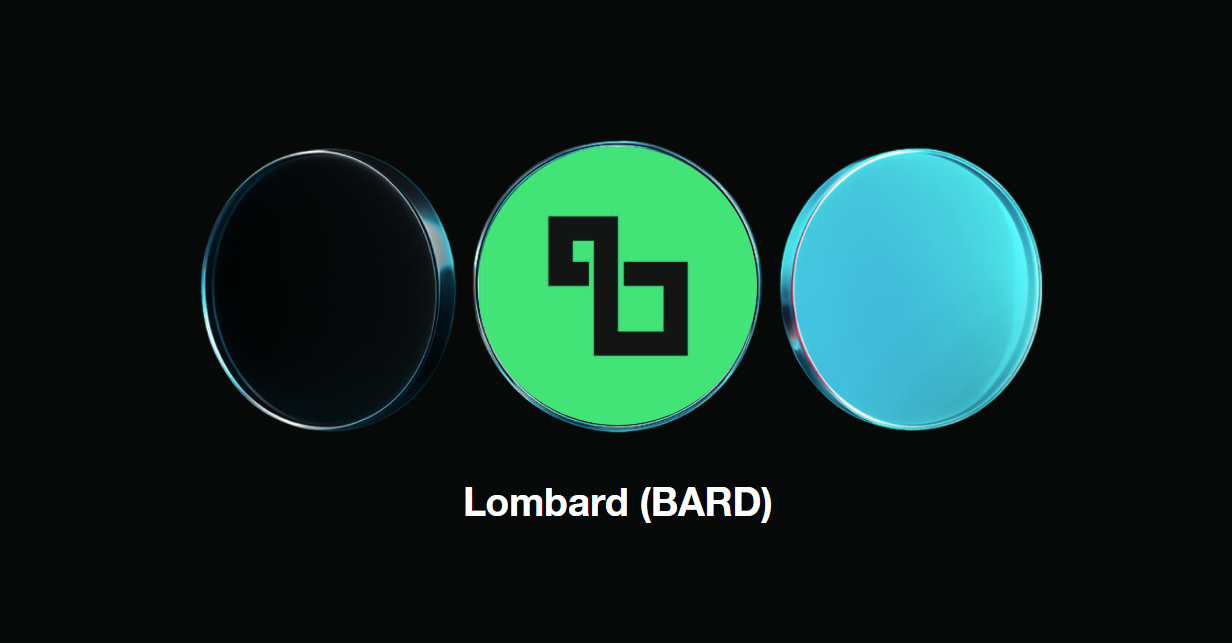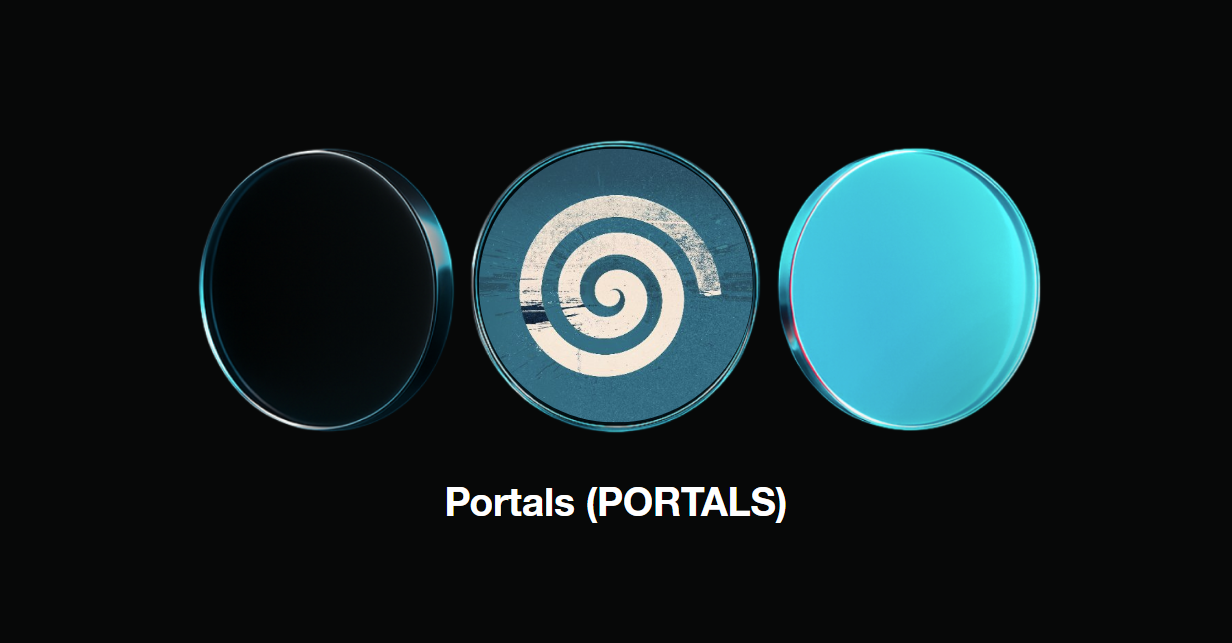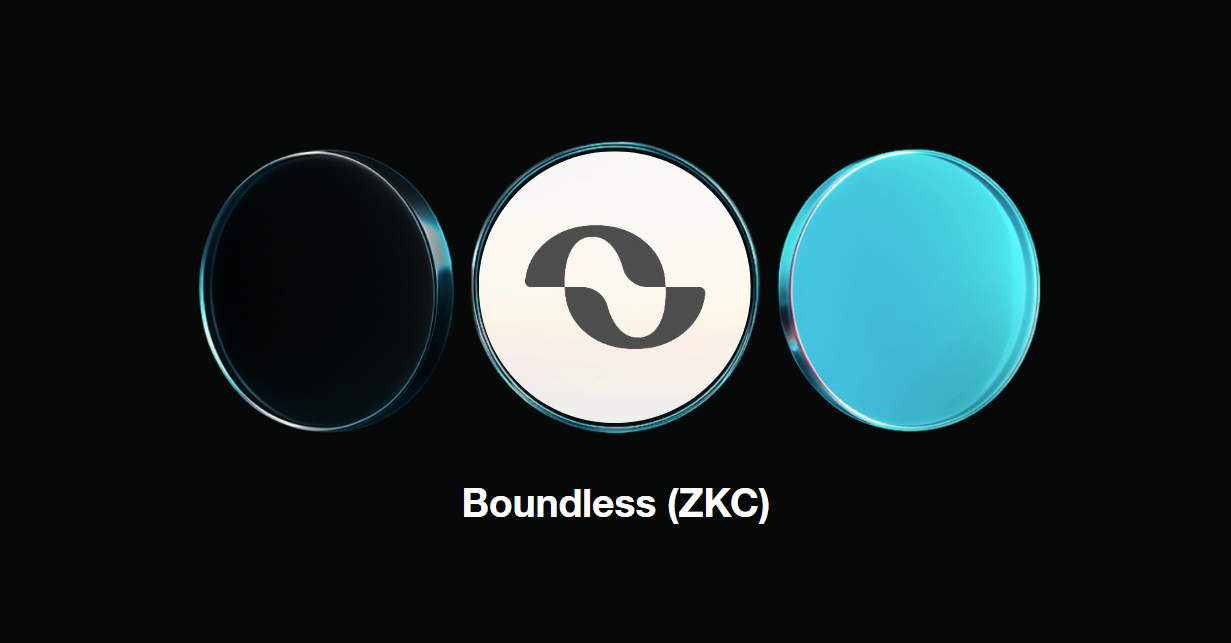
Lombard (BARD): Bitcoin DeFi Protocol with Liquid Staking
Lombard is a DeFi protocol that integrates Bitcoin into decentralized finance ecosystems through LBTC, a liquid, yield-bearing, cross-chain token backed 1:1 by BTC. Founded by a team with experience at Polychain, Babylon, Argent, Coinbase, and Maple in April 2024, this platform has raised over $110M from Polychain Capital, Franklin Templeton, and Binance Labs to bring Bitcoin capital markets onchain. Lombard (BARD) will soon be available on Bitget!
What is Lombard (BARD)?
Lombard is a DeFi protocol focused on integrating Bitcoin into decentralized finance ecosystems. The platform's main product, LBTC, is a liquid, yield-bearing, cross-chain token backed 1:1 by BTC that enables Bitcoin holders to earn yield while retaining ownership and cross-chain liquidity.

Bitcoin comprises over 50% of the crypto market but has historically been mostly passive, primarily held as a store of value with minimal direct participation in DeFi. Past Bitcoin integration with DeFi was fragmented or risk-prone, limiting capital efficiency and composability.
Core Innovation: Lombard uses LBTC, a liquid staked token on Babylon that lets BTC holders earn yield while maintaining ownership. This enables BTC to be used in staking, lending, trading, and collateral pools, providing DeFi access through decentralized validation and multi-signature architecture.
Who Created Lombard (BARD)?
Lombard was founded in April 2024 by an experienced team of DeFi builders with backgrounds at leading crypto organizations.
Jacob Phillips (Co-Founder):
● Public face of Lombard, appearing at industry events and major interviews
● Experience in the Bitcoin and liquid staking space
● Leads the company's vision for Bitcoin capital markets
Key Team Members:
● Sankha Banerjee (Head of Research): DeFi background with technical research focus
● George Beall (Strategy Lead): Business growth and protocol strategy expertise in crypto
● Matt Marshall (Head of Product): Product design and integrations, with prior fintech/protocol scaling experience
Team Backgrounds:
Team members previously held key roles at major crypto organizations including Polychain (crypto VC and protocol builder), Babylon (Bitcoin staking and cross-chain infrastructure), Argent (non-custodial wallet and DeFi UX solutions), Coinbase (exchange, custody, and institutional crypto integrations), and Maple (DeFi lending protocol with digital asset credit markets experience).
What VCs Back Lombard (BARD)?
Lombard has raised over $110 million across seed and public sale rounds from crypto venture capital firms and industry investors.
Funding Rounds:
● Seed Round: $16 million (April-July 2024), led by Polychain Capital
● Public Token Sale (BARD): $94.7 million (September 2025), 1,400% oversubscribed on Buidlpad
Major Venture Capital Backers:
● Polychain Capital (lead seed investor)
● Franklin Templeton (institutional asset manager)
● BabylonChain (strategic partner for BTC staking infrastructure)
● Binance Labs (investment and ecosystem support)
● dao5 (seed round participant)
● Foresight Ventures (seed investor)
● Mirana Ventures (seed investor)
● Mantle EcoFund (participated in round)
● Nomad Capital (participated in round)

How Lombard (BARD) Works
Lombard operates through several key technologies that make Bitcoin functional in DeFi while maintaining security and decentralization.
LBTC (Liquid Staked Bitcoin)
Users deposit BTC and receive LBTC, a token backed 1:1 by their deposited Bitcoin. LBTC can be staked directly to earn yield via Babylon protocol, used in DeFi protocols, lent, or used as collateral across multiple blockchains while users retain ownership of the underlying BTC.
Decentralized Security Consortium
Minting, redemption, and staking of LBTC require consensus from a multi-institution network of crypto market makers, validators, and Bitcoin-aligned organizations including OKX, Galaxy, Wintermute, and Amber Group, eliminating single-point-of-failure risks.
Cross-Chain Infrastructure
LBTC operates across 12+ blockchains including Ethereum, Base, BNB Chain, Sui, Solana, and others. The platform uses Chainlink's CCIP and Symbiotic's universal staking framework for secure cross-chain transfers with cryptoeconomic guarantees.
Bascule Drawbridge and Trustless Relayer
Decentralized oracles and messaging layers enable atomic, cross-chain LBTC movement with support for EVM, non-EVM, and Layer-2 networks.
DeFi Integration
LBTC is composable and tradable across DeFi ecosystems, integrated with protocols like Curve, Pendle, Uniswap, Convex, and Ether.Fi, making Bitcoin functional in DeFi applications.
You can access the platform at lombard.finance and explore documentation at docs.lombard.finance .
Lombard Token (BARD) and Economics
The BARD token serves as the utility, security, and governance token for the Lombard protocol, alongside LBTC as the main yield-bearing asset for users.
Token Details
● Token Name: BARD
● Token Symbol: BARD
● Total Supply: 1,000,000,000 (1 billion) BARD tokens
● TGE Circulation: 22%
● Blockchain Deployment: Ethereum and BNB Chain (primary networks)
Token Distribution
● Private Investors: 20% (TGE unlock: 0%, 12-month cliff, 36-month vesting)
● Core Contributors: 25% (TGE unlock: 0%, 12-month cliff, 36-month vesting)
● Foundation: 20% (TGE unlock: 22.5%, 12-month cliff, 36-month vesting)
● Ecosystem: 20% (TGE unlock: 22.5%, no cliff, 24-month vesting)
● Community Incentives: 11% (TGE unlock: 100%, no cliff, 24-month vesting)
● Airdrop: 4% (TGE unlock: 50%, no cliff, 6-month vesting)
Token Utilities
● Staking for Security: Users stake BARD to secure the LBTC bridge and cross-chain Bitcoin movements, earning yield and rewards
● Protocol Governance: BARD holders vote on protocol upgrades, integrations, fee structures, and incentive mechanisms
● Discounts and Access: Holding or staking BARD provides reduced fees, priority access to new features, and eligibility for exclusive vaults
● Ecosystem Rewards: Used for in-protocol rewards including yield for staking, referral bonuses, Lux points multipliers, and airdrop campaigns
● Developer Utility: Developers integrating Lombard's SDK/API earn BARD rewards for active integrations and protocol growth activities
Why Lombard?
Traditional Bitcoin integration with DeFi faces challenges around security, composability, and yield generation. Lombard addresses these problems:
DeFi Expertise: Founded by veterans from Polychain, Babylon, Coinbase, Argent, and Maple, bringing protocol development experience and institutional DeFi knowledge.
Institutional Validation: Over $110M raised from Polychain Capital, Franklin Templeton, Binance Labs, and crypto VCs demonstrates confidence in the Bitcoin DeFi approach.
Decentralized Security Model: Multi-institution consortium including OKX, Galaxy, and Wintermute eliminates single points of failure common in custodial bridges and centralized wrappers.
Cross-Chain Composability: Native support for 12+ blockchains with atomic bridging enables Bitcoin utility across DeFi ecosystems without liquidity fragmentation.
Institutional Partnerships: Collaborations with Chainlink for CCIP, Symbiotic for cryptoeconomic guarantees, and Babylon for Bitcoin staking provide technical infrastructure.
DeFi Integration: LBTC works with major protocols including Curve, Pendle, Uniswap, and Ether.Fi, making Bitcoin composable in DeFi applications.
The platform combines leadership experience, institutional backing, and technical infrastructure to integrate Bitcoin into decentralized finance while maintaining security and decentralization principles.

Lombard (BARD) Goes Live on Bitget
We are thrilled to announce that Lombard (BARD) will be listed in the Innovation Zone. Check out the details below:
Trading Available: 18 September 2025, 11:00 (UTC)
Withdrawal Available: 19 September 2025, 12:00 (UTC)
Trade BARD/USDT on Bitget!
Community Links: Website | Twitter | Discord | Telegram | Documentation
Disclaimer: The opinions expressed in this article are for informational purposes only. This article does not constitute an endorsement of any of the products and services discussed or investment, financial, or trading advice. Qualified professionals should be consulted prior to making financial decisions.



